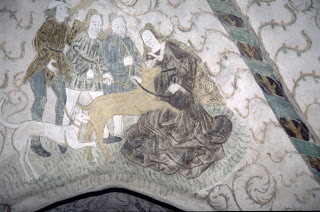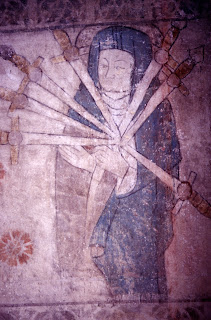Deep calleth unto deep

In a world where everything is public and nothing is hidden, our life becomes void of mystery and eventually meaningless. We lose the sense of depth within our hearts (how pathetic these words sound - and how old-fashioned indeed!) What I tend to say is better expressed by Thomas Merton: "Actually, our whole life is a mystery of which very little comes to our conscious understanding. But when we accept only what we can conceptually rationalize, our life is actually reduced to the most pitiful limitations, though we may think quite otherwise. We have been brought up with the absurd prejudice that only what we can reduce to a rational and conscious formula is really understood and experienced in our life. When we can say what a thing is, or what we are doing, we think we fully grasp and experience it. In point of fact this verbalization - very often it is nothing more than verbalization - tends to cut us off from genuine experience and to obscure our understanding instead of ...



